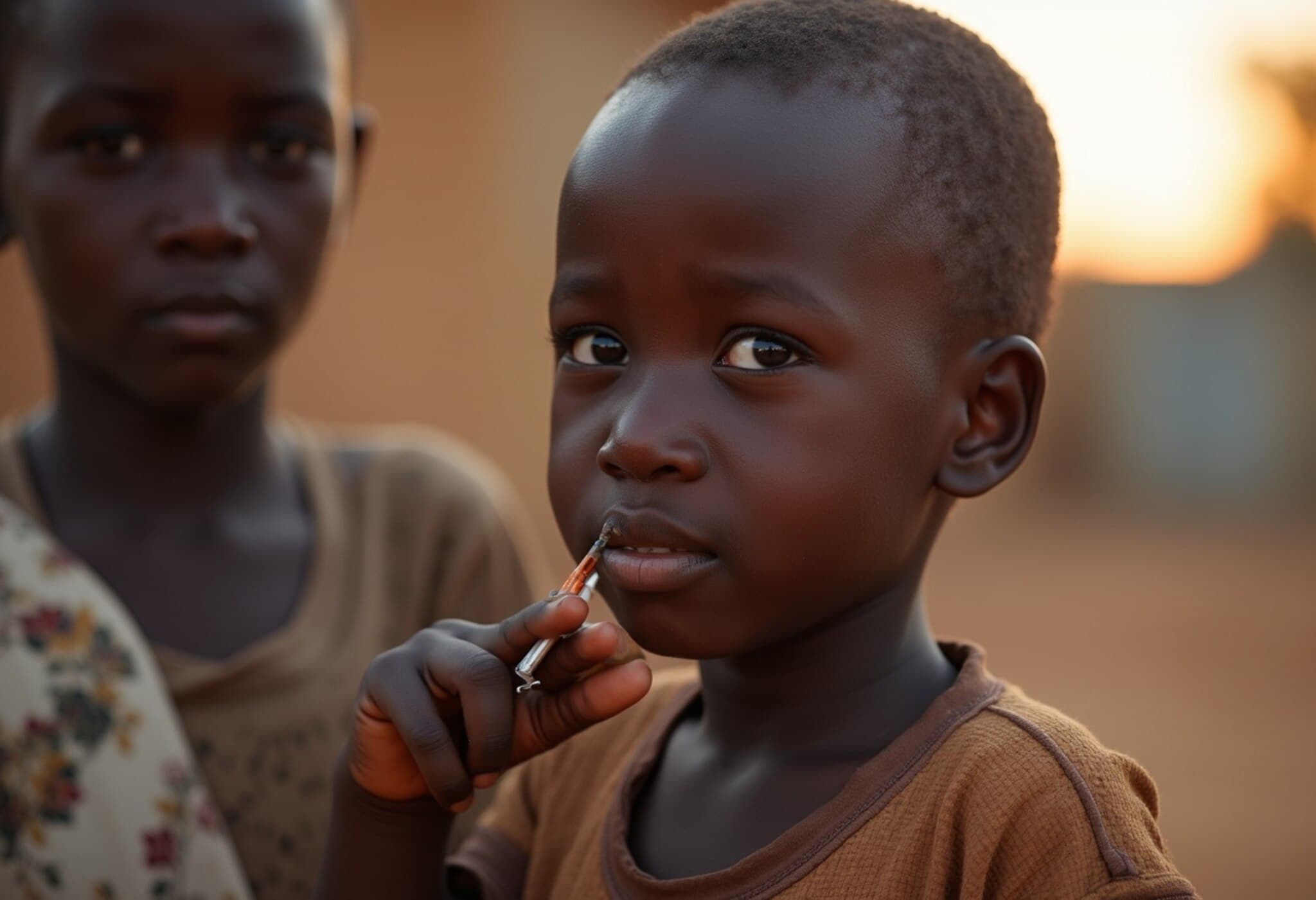A Deadly Resurgence: Somalia Faces Sharp Rise in Diphtheria Cases
Somalia is currently grappling with a devastating surge in diphtheria infections that has claimed 87 lives and affected over 1,600 people so far this year. Health officials point to a troubling combination of vaccine shortages and deep cuts in U.S. humanitarian aid as the primary factors hampering vital immunization campaigns, leaving thousands of vulnerable children at risk.
The Human Toll: Families Bear the Brunt
In the war-torn regions of Somalia, the consequences are heartbreakingly clear. Deka Mohamed Ali, a mother displaced from the volatile central town of Ceeldheere, recently lost her 8-year-old son to diphtheria. Her remaining children remain hospitalized, fighting the same disease without the protection a simple vaccine could have provided. "My children got sick, and I stayed home because I didn’t know what diphtheria was," she shared from a hospital ward in Mogadishu.
What Is Diphtheria and Why Are Vaccines Crucial?
Diphtheria is a bacterial infection known for its severe complications, including swollen glands, respiratory distress, and fever, most frequently affecting young children. It is preventable and largely eradicated in many parts of the world thanks to vaccines first introduced more than half a century ago. However, in Somalia, vaccine delivery is faltering amid logistical challenges and funding gaps.
Funding Cuts: A Crisis Within a Crisis
Somalia’s healthcare infrastructure relies almost entirely on foreign aid. Historically, the United States has been the top donor, contributing significantly to vaccination initiatives. However, following President Donald Trump’s administration, funding dropped precipitously—from $765 million in the previous fiscal year to just $149 million in 2025.
Health Minister Ali Haji Adam lamented, "The US aid cut terribly affected health funding. Many health centers closed, and mobile vaccination teams that operated in remote areas lost their support and have ceased working." This has directly impeded efforts to reach children in vulnerable communities, fueling the rapid spread of preventable diseases.
International Response and Aid Dynamics
Although a U.S. State Department spokesperson reaffirmed America’s commitment to lifesaving assistance in Somalia, aid agencies report that cuts from multiple Western donors—including Britain, France, and Germany—are straining the fragile health system.
Save the Children highlighted that closures of hundreds of health clinics have contributed to a dramatic rise not only in diphtheria but also in measles, whooping cough, cholera, and severe respiratory infections since mid-2024.
Domestic Challenges and the Road Ahead
Meanwhile, Somalia’s government faces criticism for decreasing its own health budget from 8.5% in 2023 to 4.8% in 2024, indicating a concerning deprioritization of healthcare amid multiple crises. Human rights organizations warn this underfunding could worsen outcomes and exacerbate public health vulnerabilities.
The Ministry of Health has pledged to initiate a vaccination campaign, yet details and timelines remain sparse, leaving many citizens anxious for action.
Expert Insight: Why This Matters Globally
The diphtheria outbreak in Somalia underscores a broader lesson on the interconnectedness of global health and humanitarian policy. Cuts in international aid—especially for fragile states—can rapidly reverse decades of health progress, endangering millions. For American policymakers, it serves as a stark reminder that strategic humanitarian investments yield critical dividends in global stability, disease containment, and human dignity.
- More than 1,600 diphtheria cases and 87 deaths recorded in Somalia in 2025 alone.
- U.S. aid to Somalia dropped by over 80% from $765 million to $149 million in the last fiscal year.
- Somalia’s own health budget declined significantly, from 8.5% to 4.8% of its national budget.
- Health clinics closures have doubled cases of several preventable diseases.
Editor’s Note
Somalia’s diphtheria outbreak reveals a fragile healthcare system critically dependent on external funding and international goodwill. As we weigh the consequences of aid reductions, it is vital to consider not just immediate fiscal savings but the broader cost to human lives and global health security. How will policymakers balance fiscal restraint with moral and strategic imperatives? What role should the international community play to prevent such humanitarian setbacks? These are urgent questions that merit robust international dialogue and action.








